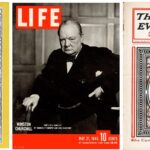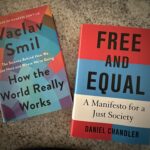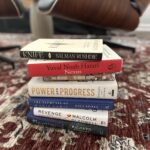Do the media have any responsibility in keeping fiction and poetry alive in America? That’s the question the Poynter Institute’s Book Babes ask in response to the recent report issued by the National Endowment for the Arts.
As I posted here on my blog, earlier this week the NEA issued a report that said the number of people reading novels and serious literature in America is off 15 percent from 20 years ago. “But it’s the youth ó our future who show the steepest slide,” writes Ellen Heitzel, a Poynter columnist. “Apparently the 18 to 24 group has gone electronic on us, because its leisure-time lit reading has dropped 28 percent.”
Reading literature is a different experience than consuming nonfiction or journalism. “Consider the argument for literature,” writes Heitzel. “As a reading experience, fiction and poetry are distinct from non-fiction, even the creative kind in which writers (journalists, even!) incorporate fiction techniques. Ideas and stories that spring from the imagination call on different tools of discernment. They cultivate intellectual qualities that are often underrated in our pragmatic, just-do-it kind of culture.”
More fron Heitzel’s article: “Although facts are the backbone of media communications, and rightly so, what springs from the imagination is not extraneous to our way of knowing. In a society that puts its reliance on science and technology, we’re just beginning to quantify the value of both kinds of learning. Howard Gardner with his theory of multiple intelligences and Daniel Goleman with his study of the emotions point to the essential role that fiction and poetry can play in our mental functioning.”
Part of the reason for such a decline, suggests Heitzel, is that serious fiction hardly receives the media attention it once did. A few months ago, the New York Times revamped its Book section, saying that much of the current fiction it was devoting much of its attention to was garbage. And even Book TV, CSPAN’s weekend programminng devoted to authors and books, steers clear of fiction, writes Heitzel.
Still readers represent a large audience out there, says Heitzel: “For one thing, literary reading continues to be a popular pastime in the United States. In spite of the bad news about reading’s decline, in 2002, only TV watching, movie-going, and exercising attracted significantly more people than reading literary works, according to the NEA. For print media in particular, given its obvious synergy with anybody who likes to read, it would be a mistake to ignore a demographic this large.”
Yet, as the study points out, there is a strong connection between reading literature and becoming an actively engaged citizen. Are the numbers the “canaries in the coal mine,” indicative of the state of our democracy and civic health?





